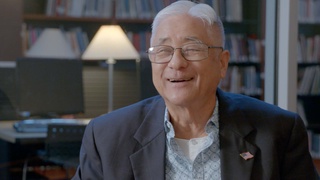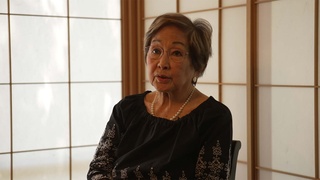Interviews
Visiting family in Japan
To the end of my term which was the Fall of 1947. During that time I was able to visit my relatives in Fukuoka. I flew down there on military transport and visited first I think my father's side and then visited my mother's side. My grandmother, who must've been about close to 90 years old, and I stayed there. I still remember taking a bath in a furo tub and it was located outside. They heated with wood underneath and that was their bath tub. It was just a piece of metal. I didn’t know how to use it so I just jumped in and nearly burnt my back and my rear. I jumped out, was so hot! I still remember that. I couldn’t forget. Anyway, I stayed there for one night. Next morning I wanted to go over to see my mother’s family, but my grandma said “Don’t do such foolish thing. Just stay here! This is your home!,” she said. She didn’t realize I was just visiting. Went to my mother’s side and the family, I stayed for a couple days and for the first time I heard and learned about my uncle, my mothers youngest brother that he had come to attack Pearl Harbor on that fleet. On the second visit, attack on Wake island, he died in the battle there.
Date: May 29, 2006
Location: Hawai`i, US
Interviewer: Akemi Kikumura Yano
Contributed by: Watase Media Arts Center, Japanese American National Museum







